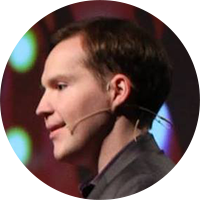By Carol S. Weinman, Esq., C.A.S., International Speaker and Author
“My son really is a good boy. And, now, he thinks he’s bad.” These were the words of a mom who recently witnessed her adult son – with autism spectrum disorder (ASD) – in handcuffs. It got me thinking even more about the unspoken fallout of an ASD individual’s encounter with police. Boys with ASD experience “hits” to their self esteem at a very early age. They feel different, sometimes odd, and often ostracized and misunderstood. Highly vulnerable from a young age, they are more susceptible to the after effects of being arrested, handcuffed or fingerprinted. They transition to adulthood with a compromised sense of self-esteem and self-concept. The impact of being arrested and handcuffed cannot be minimized. It is traumatic for anyone at any age, but for an individual with ASD, it can be even more devastating.
JUL



 By Kerry Magro, Self-Advocate, National Speaker, and Author
By Kerry Magro, Self-Advocate, National Speaker, and Author![Elayne_And_Heidi_In_White_Touched-up[1]](http://www.certifiedautismspecialist.com/wp-content/uploads/2017/03/Elayne_And_Heidi_In_White_Touched-up1-232x300.jpg) By Elayne Pearson, CAS,
By Elayne Pearson, CAS,